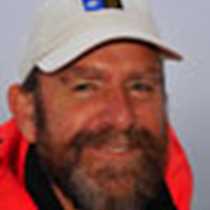Aitcho Island, South Shetland
We have survived the Drake! Tentative figures emerged from their cabins this morning, like dormice from hibernation. The sea has calmed, but anticipation mounts: we should sight land soon. We rise to a racing escort of Cape Petrels, a retinue of giant petrels, and behind them wheeling majestically and resplendent in his white robes of state, a huge wandering albatross, patriarch of the southern ocean. At 0930 we sight the first iceberg, at 1045 the sun dapples a snowy icecap: our first sight of Antarctica. As the cool breath of Antarctica reaches us, huge soft snowflakes waft down through the grey, floating onto the deck like downy feathers. We clamber up onto deck to watch our approach to English Strait.
These islands were discovered by English trader William Smith, blown off course by a storm while rounding Cape Horn in 1819. He was amazed by the wildlife- penguins, fur-seals and whales galore, and the following year, 1820, he returned to plant the British flag and claim it as New South Britain. But by then the word was already out, for British and Yankee whalers had arrived to begin the slaughter. Within 5 years the entire fur-seal population had been wiped out and the whales decimated.
Time heals everything: as we pass the jagged sawtooth islands of the Aitcho group, a Minke whale crosses our bows and soon after a humpback whale and calf surface straight ahead, blow a defiant raspberry and sound before our eyes. Racing penguins leap alongside, heading for their colonies on Barrientos Island, our chosen destination. Before we are allowed ashore we attend a detailed briefing on Antarctic Treaty guidelines, then excitedly don our warmest clothing and clamber into Zodiacs for the first time. Listen: we can hear them even before we reach land: the staccato clatter of Chinstraps and the braying of Gentoo penguins. Grounding on the shallow cobble beach they are everywhere: coming ashore beside us, preening on the beach, toiling up the hillsides, crowing from rock outcrops, standing guard over their well-grown, fluffy chicks. We gaze in wonder, giants among the neat black and white citizens of this sprawling, poop-spattered metropolis. On the far beach some are nesting among the ancient vertebrae of whales killed so long ago. All is forgiven: this place is teeming with life now, a crazy crowded crèche of penguin pullets, sprawled on their fat tummies, chasing parents for food, or waggling floppy flippers as they wait for their next meal. We are here at last: welcome to Antarctica.




